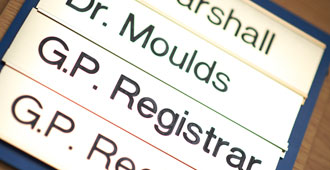The RCGP is considering reducing the costs of its exam fees following discussions with trainees groups, who have claimed that the fees are a barrier on recruiting trainees into the profession.
The college’s honourary treasurer told Pulse the RCGP was in discussions with the GPC trainees committee and its own associates in training group, with the aim of benefiting trainees ‘by reducing the costs of some individual examinations to more accurately represent their on-the-day costs’.
The GPC trainees committee had called on the college to help make the system fairer for GP trainees – who face significantly higher costs than other specialty trainees – and to find ways to curb the costs of workplace based assessments, which it says were also much more expensive for general practice than for other specialties.
Committee chair Dr Krishna Kasaraneni said the BMA wants the RCGP to substantially cut the fees for the clinical skills assessment and the applied knowledge tests, by shifting costs not incurred on the day to a one-off fee for the e-portfolio and related costs.
This would bring the overall cost of training down slightly and stop trainees paying over the odds for resitting an exam.
Dr Kasaraneni said the College should also pass on savings it is now making on the exams.
This follows the row over the controversial clinical skills assessment, which is the subject of a judicial review set to be heard in April. International medical groups claim the college exams are discriminatory, pointing to the vast difference in pass rates between international medical graduates and white UK graduates.
Critics of the exam have highlighted the high costs of the exams, especially for candidates who have to resit them. The current cost of one sitting of the CSA exam is £1,737.
Dr Helen Stokes-Lampard, RCGP honorary treasurer, defended the fees, saying: ‘Our current costs are in line with those of other comparable medical royal college examinations but – unlike other medical royal colleges – the RCGP is unique in that we have to pay the locum costs of our examiners, all of whom are practising GPs.’
However, she added that the college is working with the trainees committee to look at how fees ‘can be re-aligned between trainee membership benefits and examination costs’.
She said: ‘The outcome of the work is expected to benefit AiTs by reducing the costs of some individual examinations to more accurately represent their on-the-day costs.’
Related stories
Are AiT fees going up? If so, new GP trainees should think carefully about whether they’re worth it
This follows lobbying from the GPC trainees committee. A letter from its chair, Dr Krishna Kasaraneni, sent last May called on the college to review the way costs are broken down.
Dr Kasaraneni said the BMA wants the RCGP to substantially cut the fees for the clinical skills assessment and the applied knowledge tests, by shifting costs not incurred on the day to a one-off fee for the e-portfolio and related costs. This would bring the overall cost of training down slightly and stop trainees paying over the odds for resitting an exam.
He explained: ‘Some of costs to the college are just set-up costs. So, for example, case development slows down – there are only so many ways you can think of different scenarios for general practice, so those costs should come down over time.
‘Also the college has changed the way it books exams – whereas before, some of the circuits for 13 trainees would only have seven or eight people, where they had to bear the costs of 13 actors and examiners, now all circuits are nearly 100% full – so the costs should be spread out more and should translate to a fee reduction for the exam.’
He added: ‘The cost of the e-portfolio is also significantly higher than the equivalent ones used by doctors in other training programmes and the BMA wants to work with the RCGP to make sure that trainee doctors aren’t put off becoming a GP due to the high costs of training associated with the speciality.’
The GPC had also proposed transferring some of the fee to the annual subscription for trainee members, to increase the proportion of fees eligible for tax relief.
However, Dr Stokes-Lampard said there had been changes in rules regarding tax relief. She added: ‘The college has recently written to trainees advising that they may be eligible for tax relief on AKT [the applied knowledge test] and CSA examination fees paid since 2009, after a former dermatology trainee and, more recently, a newly qualified GP successfully applied for and received a refund from HMRC for the tax paid on their exam fees.’

















